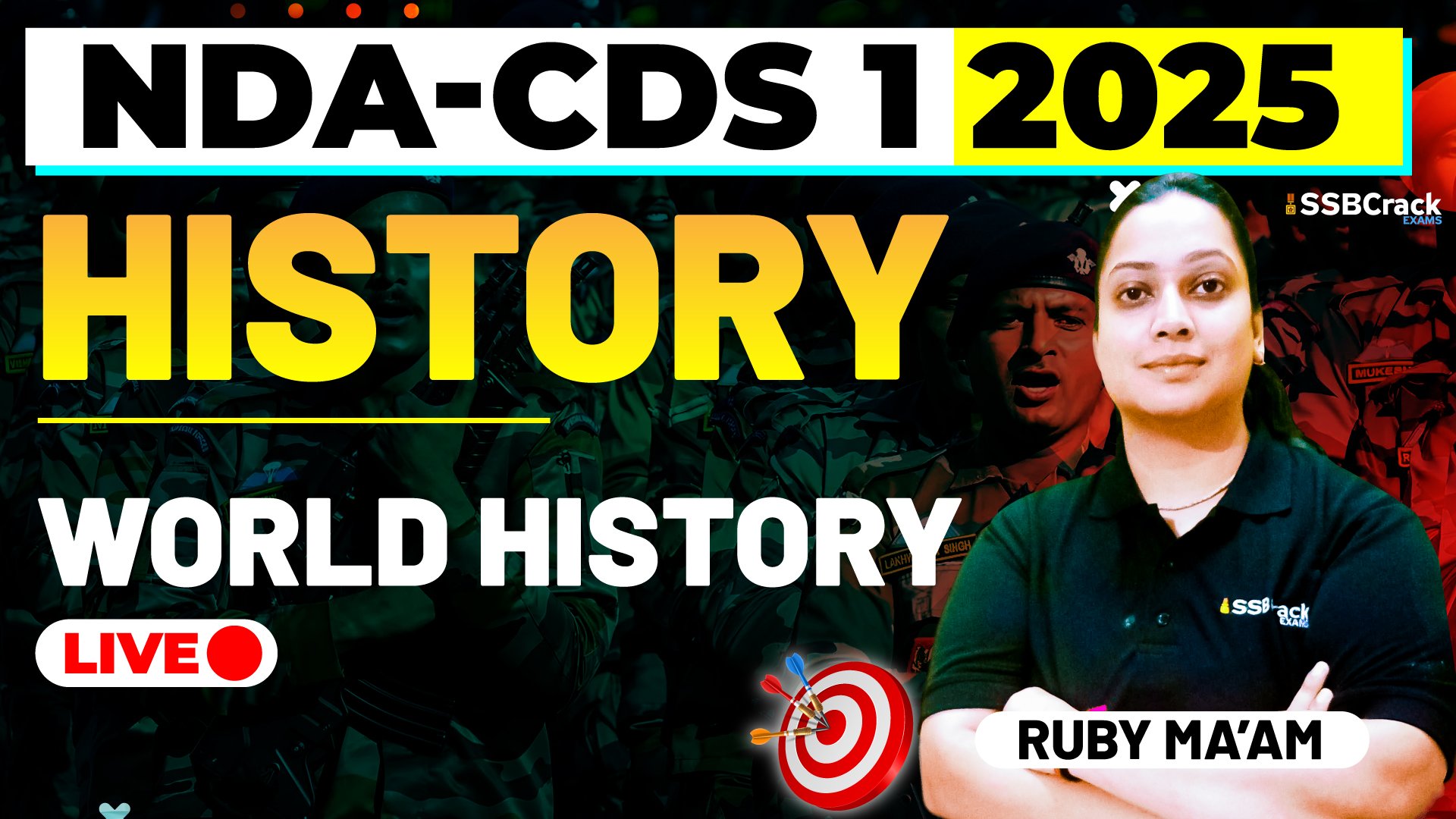World history is not merely a collection of past events but a reservoir of lessons, strategies, and perspectives that shape the present and future. For NDA (National Defence Academy) and CDS (Combined Defence Services) aspirants, a deep understanding of world history is not just an academic requirement—it is a critical tool for leadership, strategy, and effective decision-making.
Why World History Matters in NDA and CDS
The UPSC syllabus for NDA and CDS examinations emphasizes general knowledge, including world history. This emphasis reflects the need for future military leaders to possess a global perspective and an understanding of historical events that have influenced modern geopolitics, diplomacy, and warfare.
1. Understanding Geopolitics
World history provides insights into the evolution of nations, alliances, and conflicts. Events like the World Wars, the Cold War, and the decolonization movements have shaped today’s geopolitical boundaries and alliances. Understanding these events equips aspirants to analyze current international relations and predict future trends effectively.
2. Learning Military Strategies
Historical battles and wars are rich sources of military strategies, tactics, and leadership examples. From Alexander the Great’s conquests to Napoleon’s campaigns and the trench warfare of World War I, history teaches valuable lessons about strategy, adaptability, and the consequences of decisions on the battlefield.
3. Building Analytical Skills
The study of world history sharpens analytical and critical thinking skills. By evaluating causes, effects, and consequences of historical events, aspirants can develop a structured approach to problem-solving—a skill crucial for military officers.
4. Fostering Leadership Qualities
Great leaders like Winston Churchill, Abraham Lincoln, and Mahatma Gandhi demonstrated vision, courage, and resilience in the face of adversity. Learning about their leadership styles and decision-making processes can inspire aspirants to develop these qualities in their journey as future leaders.
5. Enhancing Cultural Awareness
Military officers often operate in diverse environments and interact with people from various cultural backgrounds. Understanding world history fosters cultural sensitivity and appreciation, enabling officers to engage effectively in multinational operations and peacekeeping missions.
How to Study World History Effectively
1. Focus on Key Themes
Concentrate on significant events like the World Wars, the French Revolution, the Industrial Revolution, and the rise and fall of empires. These events have had a profound impact on shaping the modern world.
2. Use Visual Aids
Timelines, maps, and charts can help visualize events, making it easier to remember chronological sequences and geographical contexts.
3. Read Relevant Books
Books like A Short History of the World by H.G. Wells and India’s Struggle for Independence by Bipan Chandra offer valuable insights into world and Indian history.
4. Practice Previous Year Questions
Analyze past NDA and CDS question papers to identify recurring topics and trends in history-related questions.
5. Connect History to Current Affairs
Relating historical events to current global issues helps in understanding the relevance of history in today’s context. For instance, studying the Cold War can provide insights into current U.S.-Russia relations.
Conclusion
For NDA and CDS aspirants, world history is not just a subject to clear the examination but a vital tool for becoming a well-rounded and informed military leader. By understanding the past, aspirants can gain the knowledge and perspective needed to navigate the complexities of the modern world and serve their nation with distinction.
Investing time in the study of world history will not only prepare you for the written examination but also lay the foundation for a successful career in the armed forces. So, embrace the lessons of history and march confidently towards your goals!







